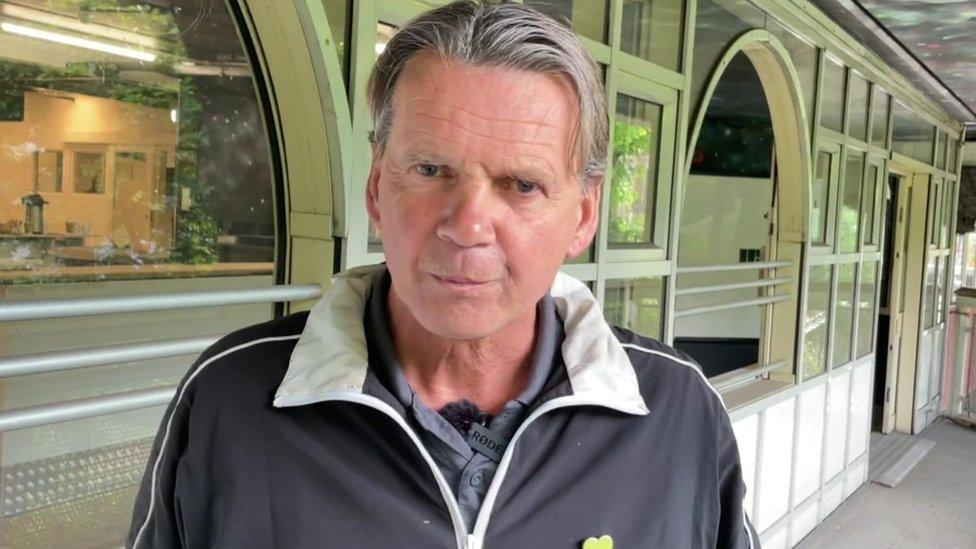The East African communities uniting for Grenfell justice
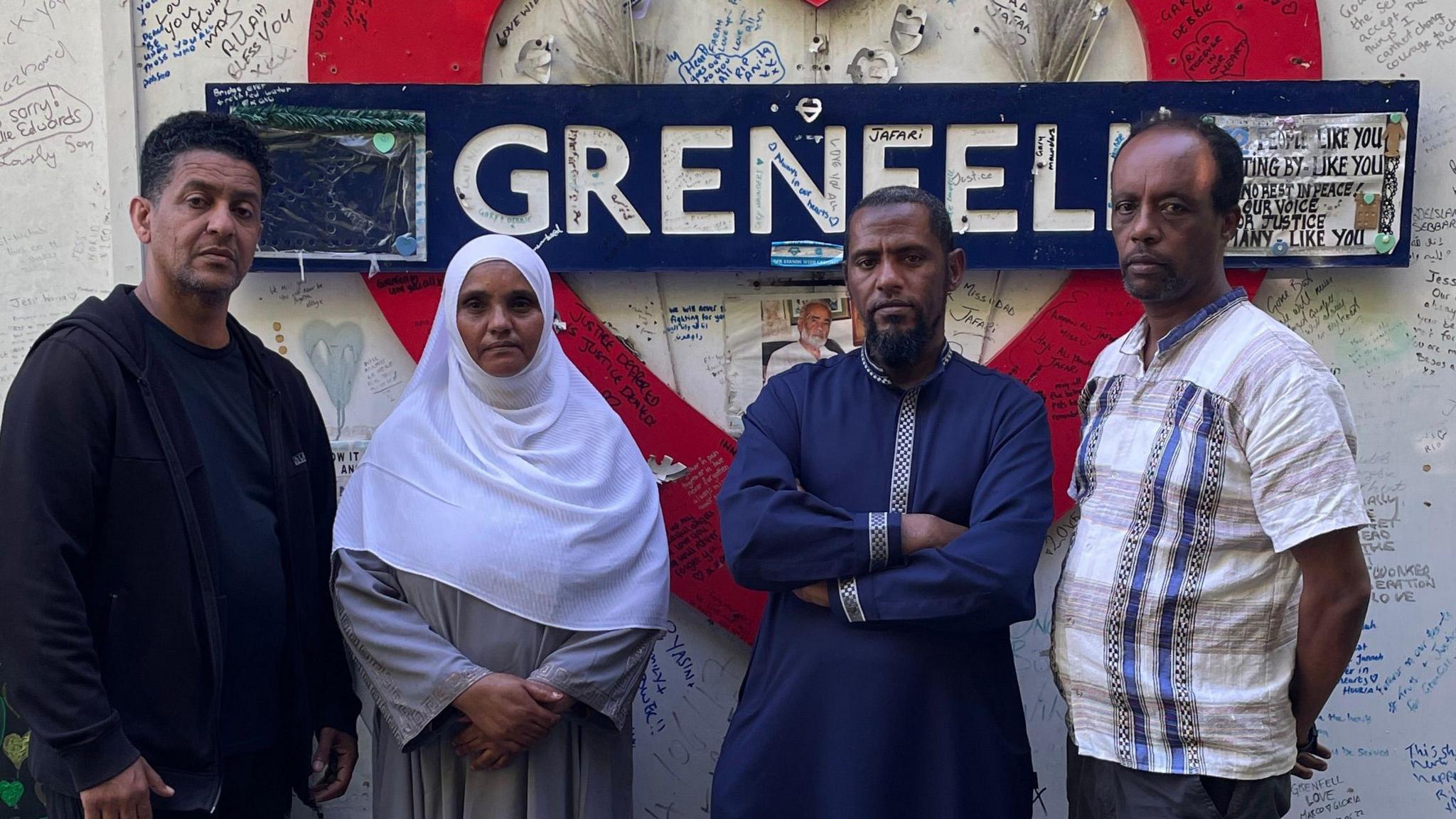
Members of the Grenfell Ethio-Eritrea Group, pictured near the tower block
- Published
Of the 72 people who lost their lives in the Grenfell Tower fire seven years ago, the Ethiopian and Eritrean communities were among the hardest hit.
Twelve people from the communities died, half of whom were children.
Ethiopia and Eritrea may have a history of conflict, but here in London the communities are united in their grief and fight for justice.
Now they are preparing to mark the seventh anniversary of the fire and are readying themselves for the publication of the final report of the public inquiry, in just a few months.
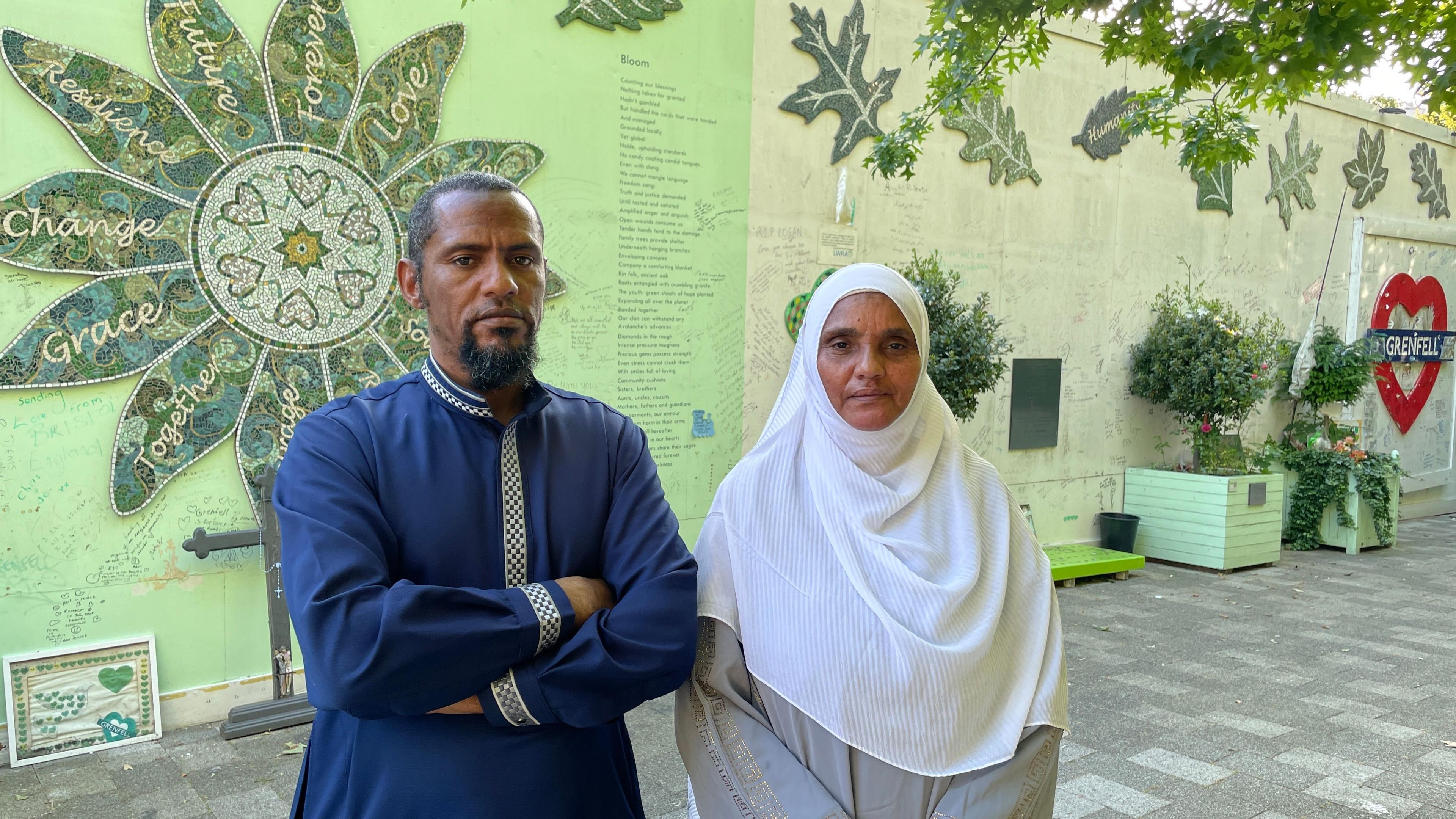
Bedriya and her brother Sadik lost their sister, brother-in-law and the couple's three children
Some of the bereaved from the two communities have never spoken to the media before, such as Bedriya Jemal Kelbeto.
She lost her sister Nura, who was 35, and her brother-in-law Hashim, who was 33.
Nura and Hashim's three children also died: their 13-year-old son Yahya, their daughter Firdaws, 12, and their younger son Yaqub, who was six.
Bedriya, who describes them as a "wonderful family", tells me: "I don't wish anybody to go through this, losing five members of their family. It made me ill mentally and physically."
She thinks back to that day seven years ago and says: "I spoke to my sister in the morning and the next day and evening, I lost my sister."
'A good family'
Bedriya's brother Sadik is critical of the "stay put" policy of the London Fire Brigade, where families were told not to evacuate the tower block when fire crews initially arrived on scene.
Sadik says: "If they had not stayed they would still be alive today."
He tells me about his sister: "She got on with everyone - different languages, different religions."
He adds: "They were a good family, well brought up.
"Nura's daughter was intelligent like her mother. She had won an award from the Bill Gates foundation. She wasn't just helpful for her family, she would have been an asset to the country."
Both Sadiq and Bedriya grew up in Ethiopia. They belong to the Ethio-Eritrea group, which first appeared in public in January during the Grenfell Testimony Week.
This was a closed event created to allow families the chance to speak face to face with those involved in the multimillion-pound compensation settlement.
They included the Royal Borough of Kensington and Chelsea, the London Fire Brigade and companies involved in the refurbishment of Grenfell Tower, such as Arconic, Celotex and Kingspan. (Arconic did not send a delegate).
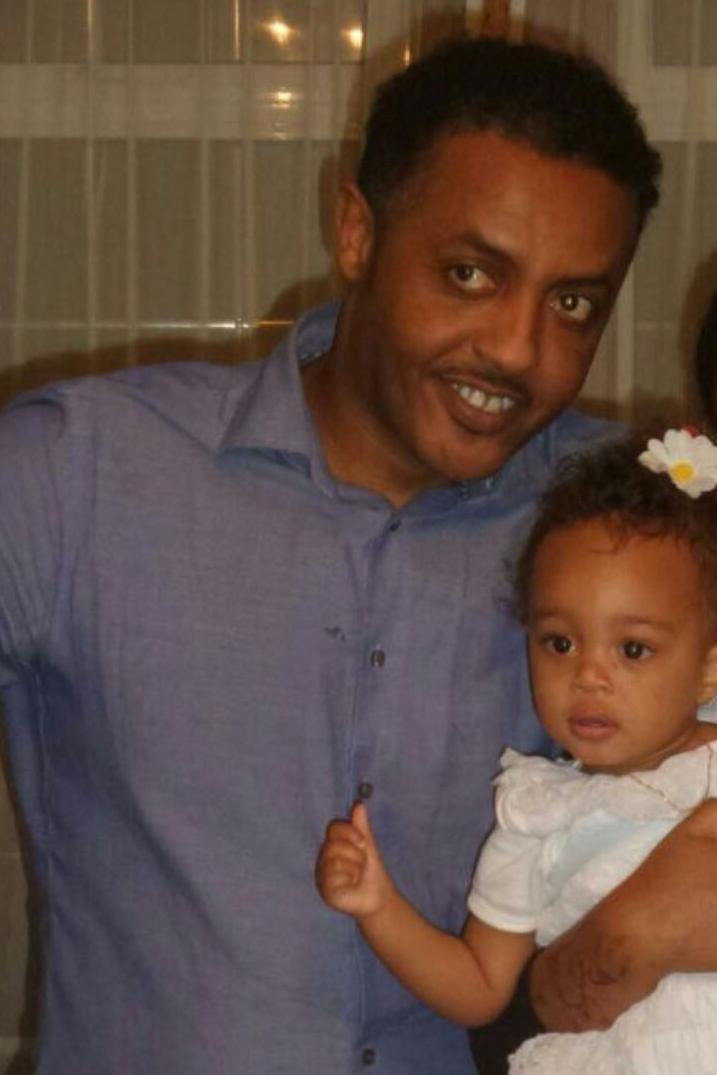
Mohamednur Tuccu and his three-year-old daughter Amaya both lost their lives
Ibhrahim Toukou, who is from Eritrea, was at the Grenfell Testimony Week.
He lost his brother Mohamednur Tuccu, his sister-in-law Amal Admedin and his three-year-old niece Amaya. Amal's cousin Amna who was visiting also died.
Ibrahim is critical of the £150m civil claim being settled before the criminal findings.
He also says his mother in Eritrea was not able to receive any compensation.
"How are you talking about compensation now?," he asks.
"First of all you have to look at the criminal investigation until the end and then ask for compensation."
Ibrahim adds: "We don't know how guilty they might be: it's not justice thinking about money. It's not justice doing it this way."
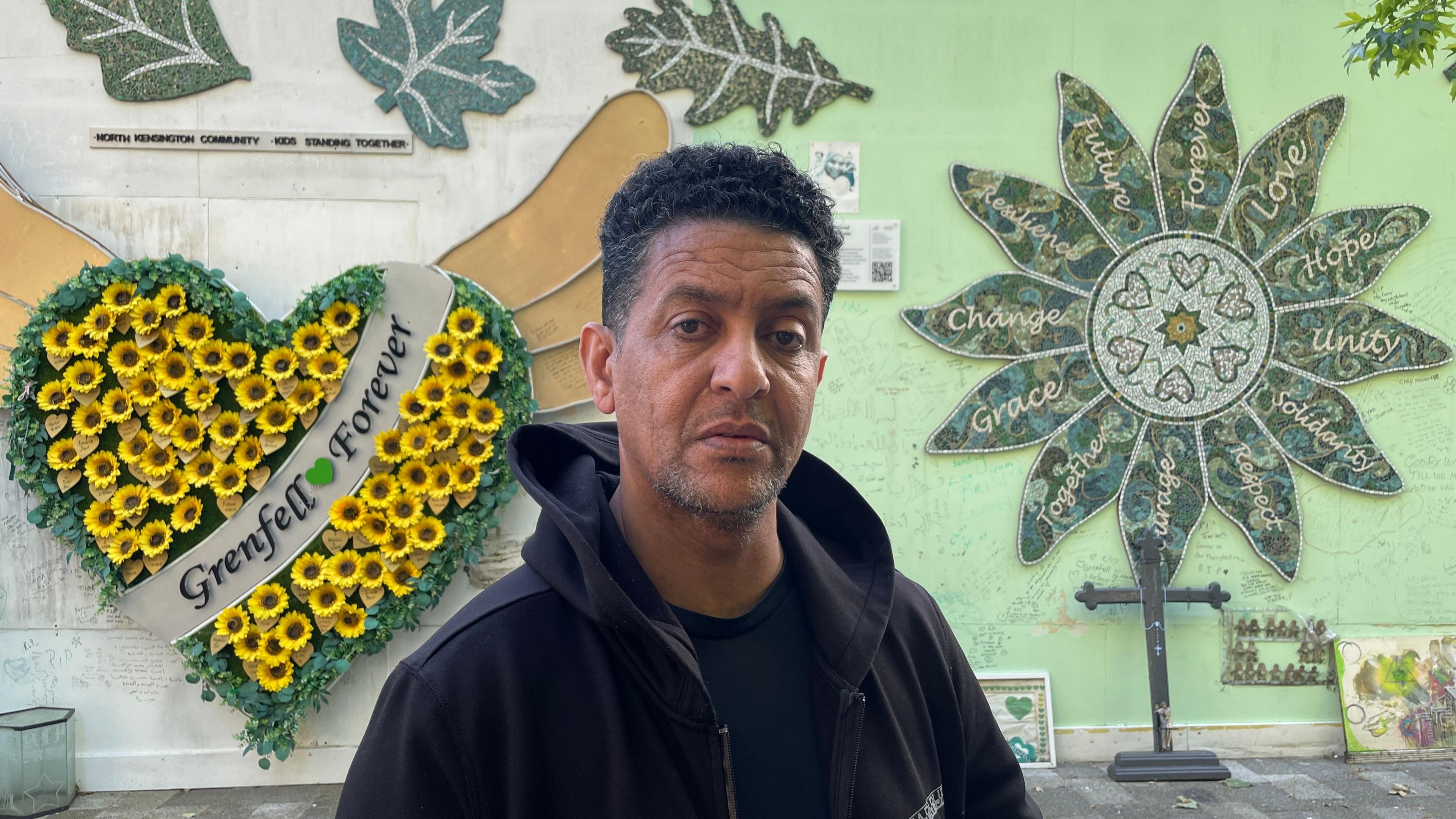
Ibhrahim Toukou pictured outside Grenfell Tower
Paulos Tekle's son Isaac died in the fire. He was five years old. "The feeling I have in my heart is the same," Paulos tells me.
"In the early stage of the fire we were really struggling, but now this group makes us together, helps us, we can share information."
He says the get-togethers mean a lot to him, explaining: "It's like therapy."
Outside of official events, the Ethio-Eritrea Grenfell group meet up regularly to socialise, share information and support each other.
They also celebrate each other's festivals together, such as Christmas and Eid.
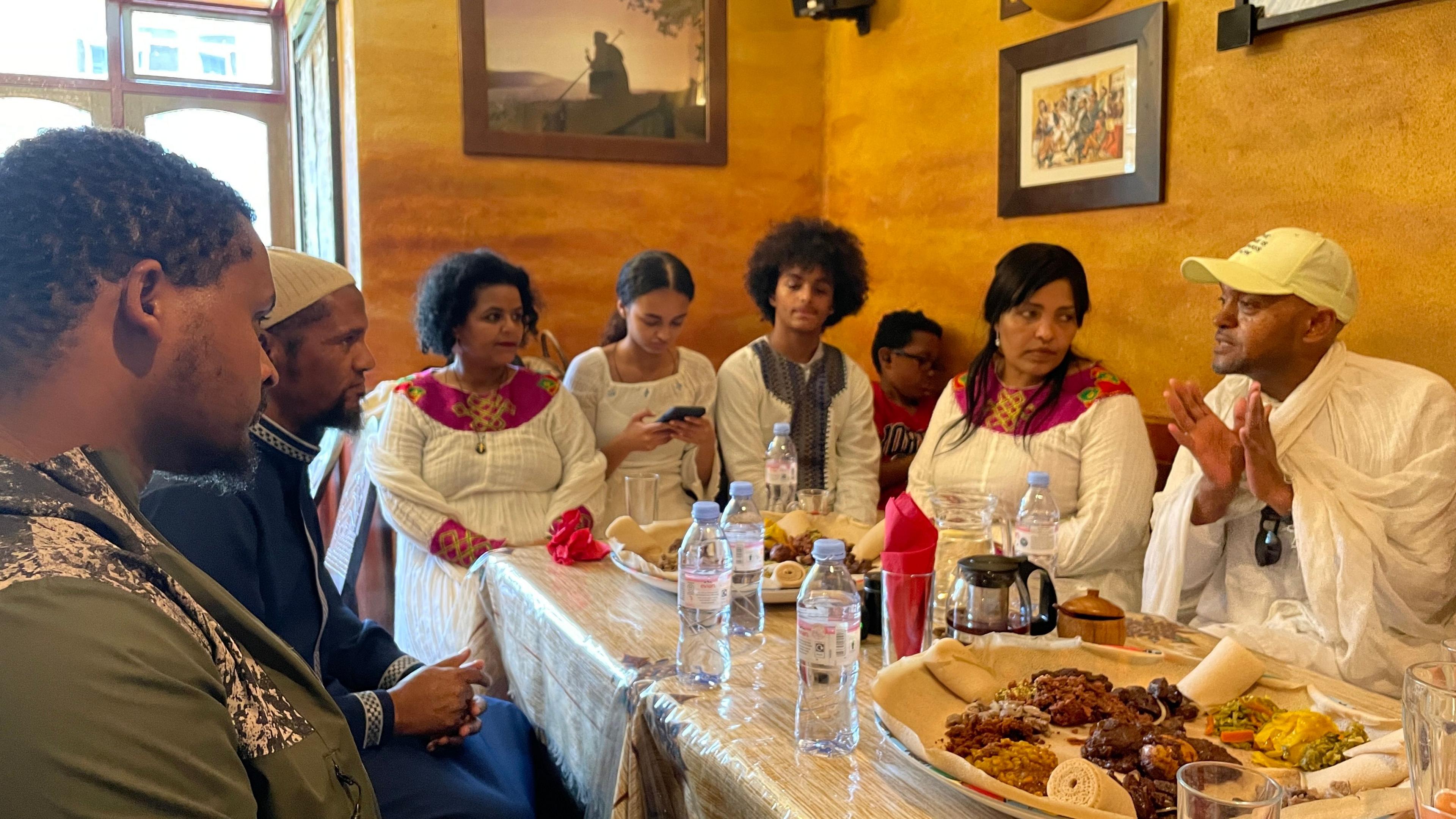
The group shares a traditional platter with injera, a form of flatbread. Some speak Amharic, others Tigrinya. Some are Muslim, some Christian.
The group's translator, Daniel Beyene, has helped them work with the police and the authorities in the aftermath of the fire.
Daniel has also guided them through the lengthy, complex and at times technical Grenfell Tower Public Inquiry.
"Language is the biggest barrier," he says.
"You have the loss and then on top of that not understanding the system and not being able to express yourself. It's really hard," he says.
'Waiting for justice'
Now, like so many affected by this tragedy, the groups are anxious about what the inquiry's final report, external and recommendations will contain.
Bedriya says: "Every day I have attended the inquiry, for the last six years. I am waiting like everybody else what is going to be in that report."
She adds: "I hope some sort of justice will be reported."
Sadik tells me he hopes the inquiry will prevent anything like this ever happening again.
He says: "As far as we are concerned, we lost our family, we didn't have justice. We are still waiting for justice."
The report will be made public on 4 September.
Listen to the best of BBC Radio London on Sounds and follow BBC London on Facebook, external, X, external and Instagram, external. Send your story ideas to hello.bbclondon@bbc.co.uk, external
- Published14 June 2018
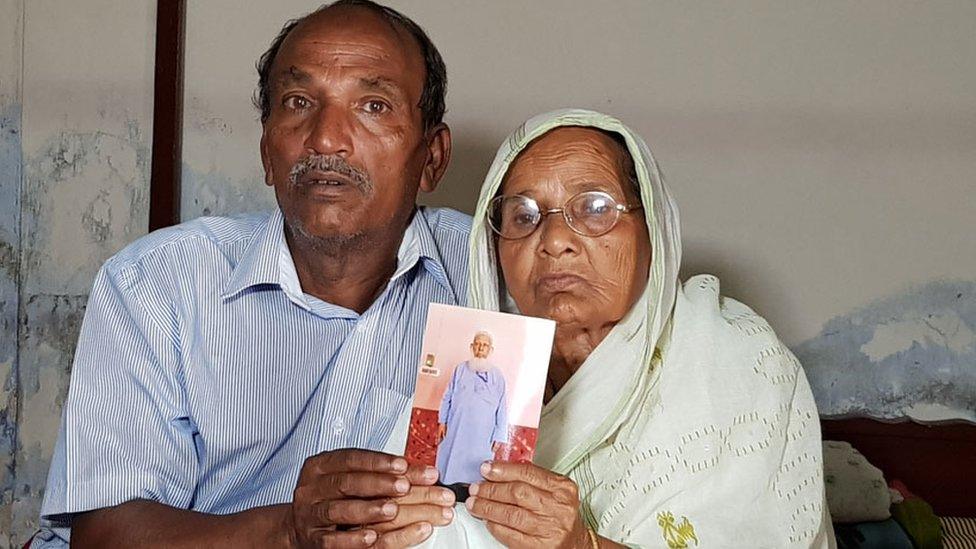
- Published29 January 2024
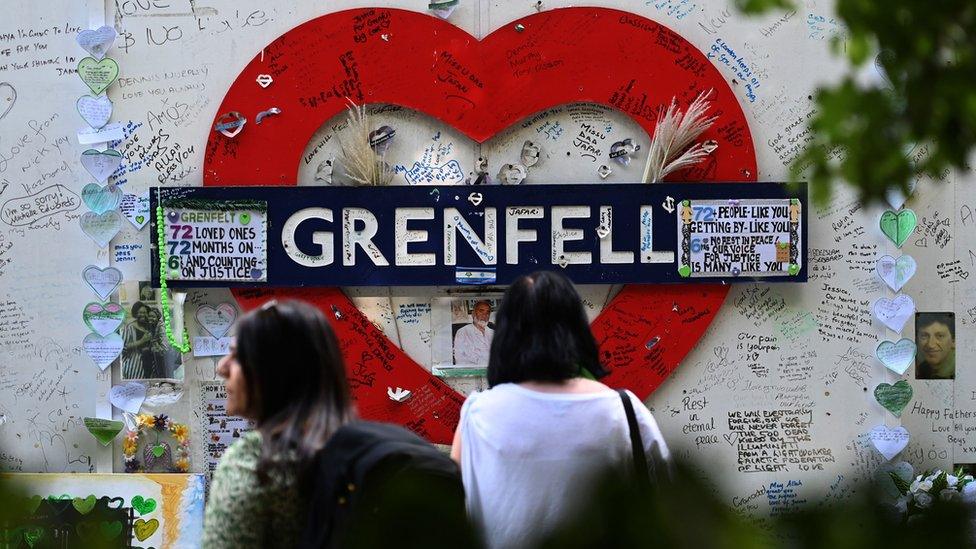
- Published12 June 2024
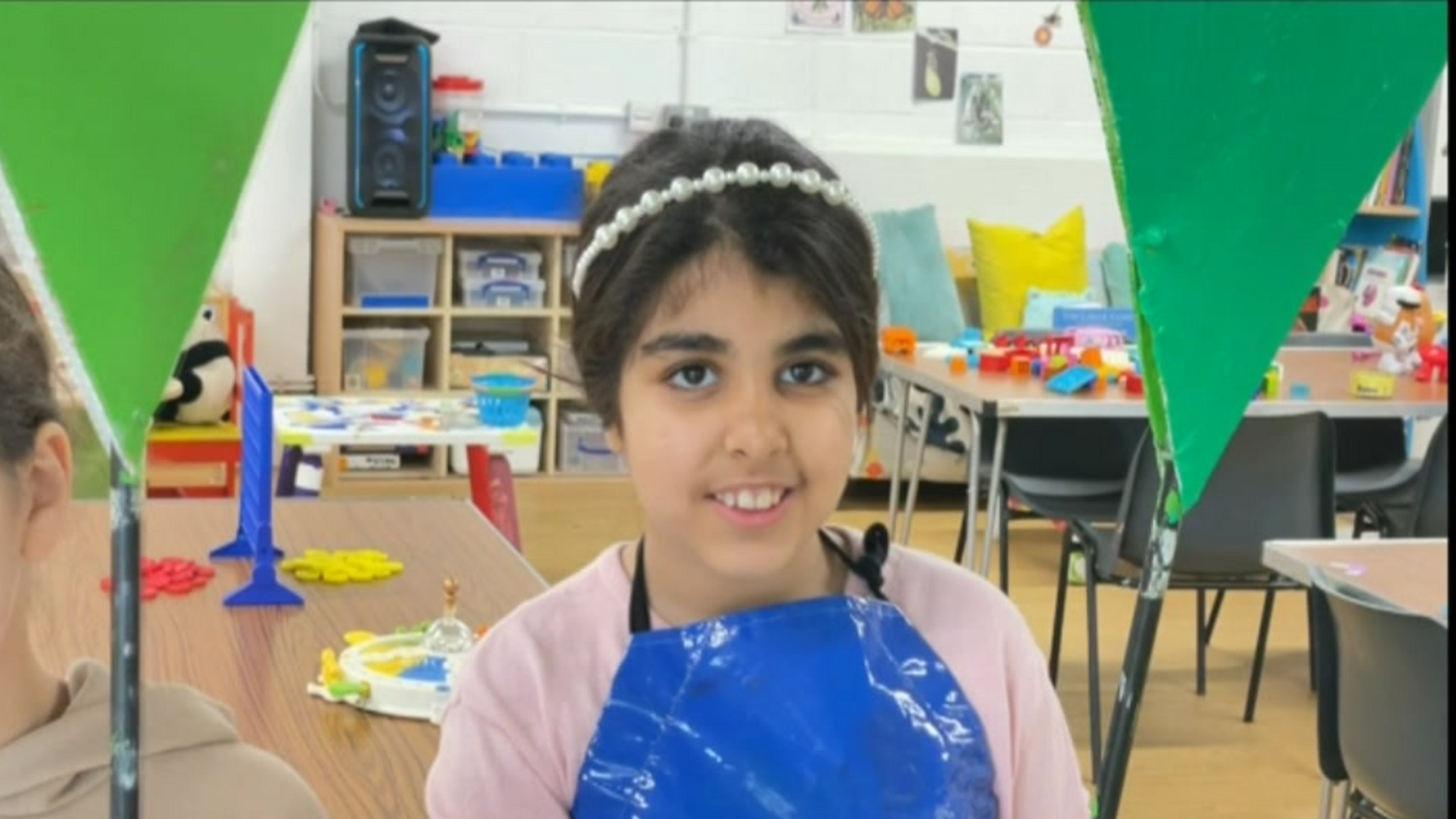
- Published13 June 2022
